Can anyone recommend a good ANSI SQL reference manual?
I don't necessary mean a tutorial but a proper reference document to lookup when you need either a basic or more in-depth explanation or example.
Currently I am using W3Schools SQL Tutorial and SQL Tutorial which are ok, but I don't find them "deep" enough.
Of course, each major RDBMS producer will have some sort of reference manuals targeting their own product, but they tend to be biased and sometime will use proprietary extensions.
EDITED: The aim of the question was to focus on the things database engines have in common i.e. the SQL roots. But understanding the differences can also be a positive thing - this is quite interesting.
